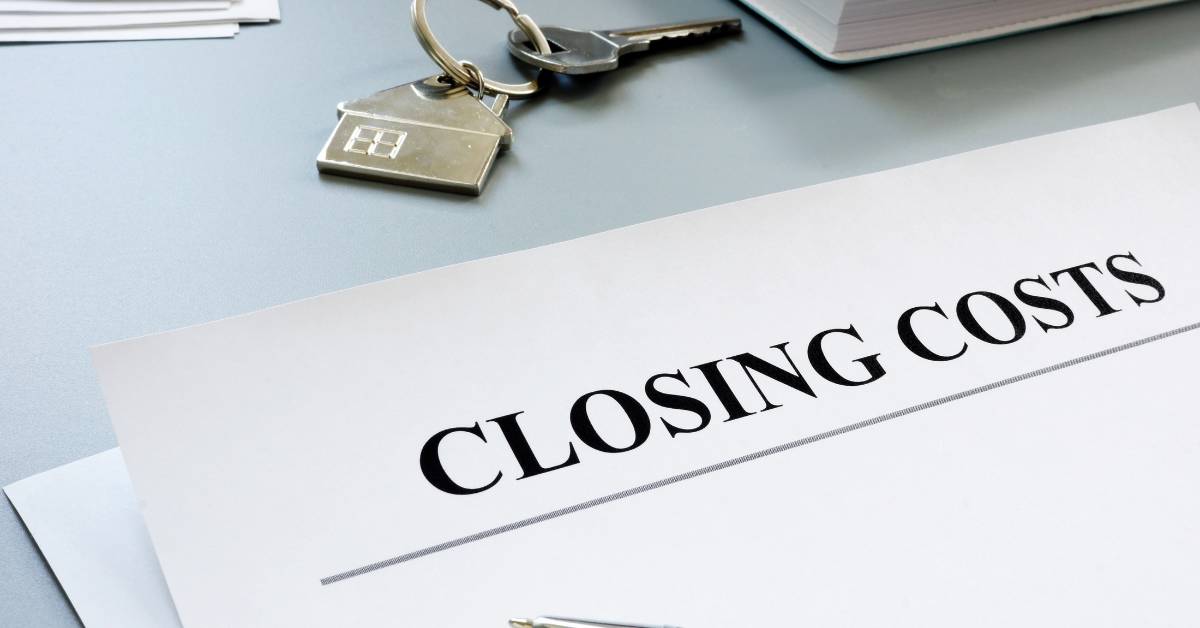FHA loans are designed for individuals with low incomes and credit requirements. So, it’s fair to want to understand how much you’re likely to spend on your closing costs.
Whether you’re a first-time homebuyer or an experienced homeowner, understanding the ins and outs of closing costs is crucial to making a sound financial decision.
In this article, we’ll dive deep into the world of FHA loan closing costs to give you a comprehensive understanding of what to expect, and what your options are for covering the closing costs.
Ready? Let’s go.
FHA Loan Closing Requirements
FHA closing costs are the fees and expenses that you are required to pay when buying a property with an FHA loan.
These costs include:
- Appraisal fee: An FHA appraisal is required to ensure the property meets the FHA’s minimum property standards. The cost of the appraisal can vary depending on the location and size of the property.
- Title search and insurance: Your lender will require a title search to ensure there are no liens or other claims on the property that could affect your ownership. You’ll also need to purchase title insurance to protect against any issues that may arise with the title in the future.
- Credit report: Your lender will pull a credit report to assess if you meet the FHA loan credit requirements and determine your interest rate. There may be a fee associated with this.
- Origination fee: This fee covers the lender’s administrative costs for processing your loan application. The fee is typically 1% of the loan amount but can vary by lender.
- Prepaid interest: You may need to pay interest on your loan from the date of closing to the end of the month. This can be a significant cost, so it’s important to budget for it.
- Mortgage insurance premium (MIP): FHA loans require mortgage insurance, which protects the lender in case you default on your loan. You’ll need to pay an upfront MIP at closing, as well as an annual MIP that’s added to your monthly mortgage payments.
- Escrow deposits: Your lender may require you to make deposits into an escrow account to cover future property taxes, insurance premiums, and other expenses.
These costs are not set in stone and can vary depending on the lender, location, and other factors. They may also vary for FHA loan variations like the FHA 203k loan.
Therefore, it is essential for you to understand the specific closing costs associated with your FHA loan before finalizing your purchase.
How to Calculate Closing Costs on an FHA Loan

As we just mentioned, closing costs vary depending on multiple factors, so calculating the closing costs can get a bit complicated.
But, here are some steps to help you come up with a pretty good estimate of what your closing costs will be.
- Obtain a Loan Estimate: Your lender is required to provide you with a Loan Estimate, which outlines the estimated closing costs associated with your FHA loan. This estimate will include fees for the appraisal, credit report, title search, and other services.
- Calculate the Upfront Mortgage Insurance Premium (UFMIP): FHA loans require an upfront mortgage insurance premium (UFMIP) that’s typically 1.75% of the loan amount. To calculate this cost, multiply the loan amount by 0.0175.
- Estimate the Annual Mortgage Insurance Premium (MIP): In addition to the UFMIP, FHA loans also require an annual mortgage insurance premium (MIP). The amount of the MIP will depend on the size of your down payment and the term of your loan. You can use the FHA’s mortgage insurance premium calculator to estimate this cost.
- Factor in Prepaid Interest: You may need to pay interest on your loan from the date of closing to the end of the month. To estimate this cost, divide your interest rate by 12 and multiply the result by the loan amount.
- Add in Other Fees: Finally, factor in any other fees associated with your loans, such as an origination fee or prepaid taxes and insurance.
Once you’ve added up all of these costs, you’ll have a good estimate of the total closing costs associated with your FHA loan.
We highly suggest you do this calculation with your local lender. If you’re looking to finance the purchase of a home in any of our service areas, then give us a call.
Lenders have experience with loan closing costs and are able to give you more accurate estimates based on their experience and the present market rates.
What Are the Average Closing Costs on an FHA Loan?
The average closing costs on an FHA loan can vary widely depending on the location of the property, how much you qualify for, and the lender you work with.
However, the Federal Reserve states that closing costs typically range from 2% to 5% of the loan amount.
Average closing costs example
On a $200,000 FHA loan, for example, the average closing costs could range from $4,000 to $10,000. Here’s a breakdown of some of the most common closing costs you can expect to pay on an FHA loan:
- Appraisal fee: $300 – $500
- Credit report: $30 – $50
- Title search and insurance: $500 – $1,000
- Origination fee: 1% of the loan amount
- Prepaid interest: Varies depending on the interest rate and closing date
- Mortgage insurance premium (MIP): 1.75% of the loan amount for the UFMIP, plus an annual MIP that can range from 0.45% to 1.05% of the loan amount
- Escrow deposits: Varies depending on the property taxes and insurance premiums in your area.
To summarize the table below highlights all the costs that are likely to be included in your FHA loan closing cost.
| FHA Closing Costs | Price Range |
|---|---|
| Upfront Mortgage Insurance Premium (UFMIP) | 1.75% of the loan amount |
| Annual Mortgage Insurance Premium (MIP) | 0.45% to 1.05% of the loan amount per year |
| Appraisal Fee | $300 to $600 |
| Credit Report Fee | $25 to $50 |
| Origination Fee | 0.5% to 1% of the loan amount |
| Title Insurance | $500 to $1,500 |
| Title Search | $200 to $400 |
| Escrow Fees | Varies by location |
| Recording Fees | Varies by location |
| Prepaid Property Taxes | Varies by location |
| Prepaid Homeowners Insurance | Varies by location |
| Flood Certification | $15 to $25 |
| Inspection Fees | $300 to $500 |
| Survey Fees | $300 to $600 |
| Pest Inspection | $50 to $150 |
Remember that these are just estimated. The loan estimate from your lender will have a more accurate estimate based on your specific loan.
Who Pays Closing Costs on an FHA Loan?

Now that we have a good understanding of what and how much the closing costs are, let’s discuss who pays for the closing costs.
Closing costs on an FHA loan can be paid by the buyer, the seller, the lender, or a combination of all three depending on the terms of the purchase agreement and the negotiations between the relevant parties.
Buyer-paid closing costs
As the borrower, you can choose to pay for all of the closing costs associated with your FHA loan. This typically includes the appraisal fee, credit report fee, title search and insurance fees, and any other fees associated with the loan.
Seller-paid closing costs
In some cases, the seller may agree to pay for some or all of the buyer’s closing costs.
This is known as a seller concession. The seller can contribute up to 6% of the sale price towards the buyer’s closing costs.
It’s important to keep in mind that the amount of the seller’s concession cannot exceed the actual amount of the closing costs.
For example, if the buyer’s closing costs total $5,000, the seller can only contribute up to $5,000 towards the closing costs.
Lender-paid closing costs
Some lenders offer the option of a lender credit, which can be used to offset some of the closing costs. In exchange, the lender may charge a slightly higher interest rate.
Combination of the buyer, seller, and lender-paid closing costs
In some cases, the buyer, seller, and lender may agree to split the closing costs in a way that works for everyone. This is a more popular option.
Ultimately, who pays the closing costs on an FHA loan will depend on the negotiations between the buyer and seller, and the terms of the purchase agreement.
Does the Seller Have to Pay Closing Costs on an FHA Loan?
No, the seller is not obligated to pay closing costs on an FHA loan, but they may choose to do so as part of the negotiations between the buyer and seller.
FHA guidelines allow for seller concessions of up to 6% of the sale price, and in a competitive real estate market, offering to pay some or all of the buyer’s closing costs can be a way to make a seller’s offer more attractive to the buyer.
Remember that there are some costs a seller is not allowed to pay such as any part of the down payment for the home. How much of your closing costs your seller pays will depend on your negotiation skills.
Does the FHA Loan Cover Closing Costs?

What happens if you don’t have the money to pay for your part of the closing costs? Does that mean the end of your homeowning dreams? Luckily not.
An option is to have some of the closing costs rolled into the loan. This is particularly useful if you have limited cash upfront. This means you will pay your closing costs off over time and the costs will be included in your monthly mortgage payment.
However, the FHA loan program does not allow for all the closing costs to be rolled into the loan.
Here are the closing costs that can be financed with an FHA loan:
- Upfront Mortgage Insurance Premium (UFMIP): The UFMIP is typically 1.75% of the loan amount and can be financed into the loan.
- Appraisal fee: The cost of the appraisal can be included in the loan amount.
- Credit report: The cost of pulling your credit report can be financed into the loan.
- Origination fee: The origination fee, which covers the lender’s administrative costs, can be financed into the loan.
- Escrow deposits: Your lender may require you to make deposits into an escrow account to cover future property taxes, insurance premiums, and other expenses. These deposits can be included in the loan amount.
On the other side, here are some closing costs that cannot be financed with an FHA loan:
- Title search and insurance: You’ll need to pay for a title search and purchase title insurance separately.
- Prepaid interest: You’ll need to pay interest on your loan from the date of closing to the end of the month separately.
- Homeowners insurance: You’ll need to purchase homeowners insurance separately.
- Property taxes: You’ll need to pay any property taxes due separately.
It is important to note that while rolling closing costs into your loan may be really useful initially. However, it also means that your monthly mortgage payment will be higher which may cause financial strain over time.
Loan Costs that FHA Will Not Allow Buyer to Pay
Believe it or not, there are closing costs that you as a buyer, are not allowed to pay.
These are costs that are the responsibility of the seller or the lender. Make sure to remember these to avoid violating FHA terms.
Here are some examples of loan costs that the FHA does not allow the buyer to pay:
- Lender’s inspection fee: The FHA prohibits you from paying for the lender’s inspection fee, which is the cost of inspecting the property to ensure that it meets the FHA’s minimum property standards.
- Processing and underwriting fees: These are fees that are charged by the lender to cover the cost of processing and underwriting the loan. The FHA prohibits you from paying these fees directly, although they can be included in the loan amount.
- Tax service fees: These are fees charged by the lender to ensure that the borrower’s property taxes are paid on time. The FHA does not allow you to pay this fee.
- Document preparation fees: These are fees charged by the lender to prepare the loan documents. The FHA does not allow you to pay this fee.
- Appraisal re-inspection fee: If the property requires a re-inspection of the appraisal, the FHA prohibits you from paying this fee.
It’s important to note that while the FHA prohibits the borrower from paying these fees directly, they may still be included in the loan amount.
Additionally, the seller may agree to pay some or all of these fees as part of the negotiations between the buyer and seller.
Frequently Asked Questions
Can you roll closing costs into an FHA loan?
Yes, as we have discussed in the article, you can roll some closing costs into your FHA loan. Remember that there are certain closing costs like homeowner’s insurance and property taxes that cannot be rolled into your FHA loan.
Also, remember that rolling closing costs into your loan means you will have a higher monthly mortgage payment.
Why are FHA closing costs so high?
FHA closing costs may appear high because they include upfront mortgage insurance premiums and annual mortgage insurance premiums, which are required by the FHA to protect the lender in case of borrower default.
How can I lower my FHA closing costs?
The best way to lower your FHA closing costs is to try negotiating with the seller to pay a portion of the closing costs or find a lender that offers lender credits or other programs to help cover the costs.
What is the payment to FHA at closing?
The payment to FHA at closing includes the upfront mortgage insurance premium (UFMIP), which is a one-time fee that is required on all FHA loans.
The UFMIP is typically 1.75% of the base loan amount and can be rolled into the loan or paid upfront.
How much are closing costs with FHA cash out?
Closing costs with an FHA cash-out refinance can vary depending on factors such as the loan amount, property location, and lender fees.
However, you should expect to pay standard closing costs such as title fees, appraisal fees, and origination fees, in addition to the upfront and annual mortgage insurance premiums required by the FHA.
Wrapping Up
Understanding the closing costs of an FHA loan is an important aspect of the home-buying process. While they may vary depending on various factors, it’s essential to carefully review and consider these costs in your budgeting.
If you have questions or concerns about the closing costs, don’t hesitate to reach out to us for clarification and guidance. We can provide you with valuable information and options to help manage the costs.
Remember, being well-informed and proactive can empower you to make informed decisions about your home purchase.
If you’re ready to take the next step in your homebuying journey, contact us today for expert assistance and guidance.






